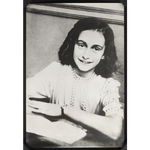LBI Book Club, Vol VII: The War of the Jews
By Lion Feuchtwanger

- Tag/Uhrzeit
- –
- Format
- Online
This month, we will be reading and discussing The War of the Jews: A Historical Novel of Josephus, Imperial Rome, and the Fall of Judea and the Second Temple (also known as Josephus: A Historical Romance) by Lion Feuchtwanger, published in 1932. We are pleased to be joined for the discussion by Professor Johnathan Skolnik.
About the Book
Joseph ben Matthias, Judaen aristocrat and Jerusalem Temple priest of the first rank, steps out into the boundless, magnificent city of Rome. He's clever, handsome, fêted by his Jewish hosts, and on a righteous mission to free three venerable old Jews wrongfully imprisoned as rebels. Joseph secures an audience with Nero's beautiful young Empress, Poppæa. Charmed by Joseph's zeal, she asks the Minister of Oriental Affairs to release the prisoners. The Minister seizes the opportunity to trade his assent for an edict guaranteed to outrage and mobilize the Jews of Judaen; Rome needs an excuse to comprehensively crush ongoing Jewish resistance. His scheme bears fruit. In the year 66 Judaen revolts. Led by canny old commander Vespasian, Roman forces prevail until only the fortified city of Jerusalem remains in the hands of Jewish rebels. Vespasian is acclaimed Emperor and returns to Rome, leaving the siege to his son Titus. Weeks drag by. Jerusalem, with its lofty, magnificent Temple, becomes to the besieging Romans a symbol of obdurate Jewish arrogance to be overthrown. Rebel commander, Roman captive and Flavian protégé, Josephus, long reviled as a traitor and Roman toady, is portrayed by Feuchtwanger with clear-eyed empathy as a complex, brilliant man whose desire to become a "citizen of the world" conflicts with his Jewish identity. It was Joseph’s destiny, however, to become a fierce defender in Rome of the unique importance of Jewish contribution to humanity, and to become known as the first-century historian Flavius Josephus and the author of The Jewish War (Description adapted from a review by Annis, HistoricalNovels.info).
About the Author
Lion Feuchtwanger (1884–1958) was a German-Jewish novelist and playwright. A prominent figure in the literary world of Weimar Germany, he influenced numerous contemporaries as a leading cultural figure, including Bertolt Brecht. Feuchtwanger's Judaism and fierce criticism of the Nazi movement, years before it assumed power, ensured that he would be a target of government-sponsored persecution after Adolf Hitler's appointment as chancellor of Germany in January 1933. Following a brief period of internment in France and a harrowing escape from Europe, he found asylum in the United States, where he died in California. Until his death, he was an important figure in German literature and the middle of a circle of cultural figures who had fled Europe in the Nazi period.
About our Guest
Jonathan Skolnik is Associate Professor of German at the University of Massachusetts Amherst, where he is also on the faculty in Judaic and Near Eastern Studies and in History. His books include Jewish Pasts, German Fictions: History, Memory, and Minority Culture in Germany, 1824-1955. You can learn more about him here.



